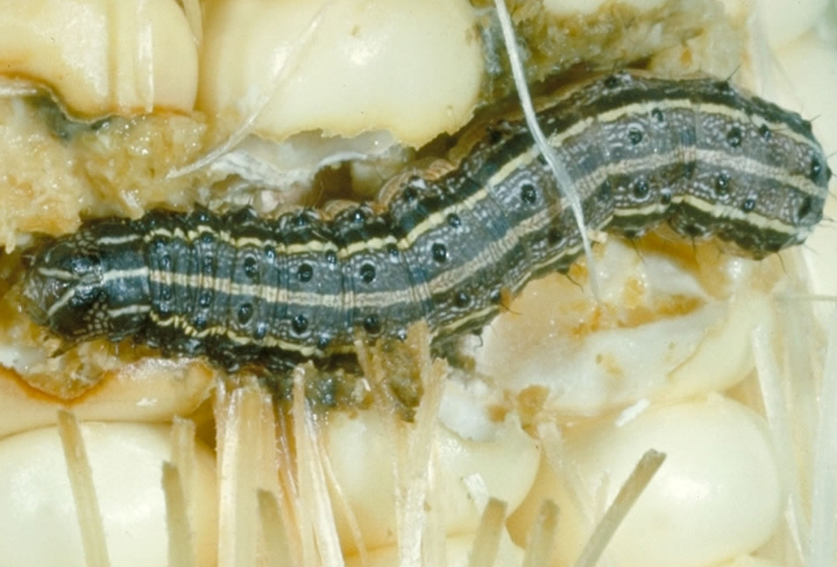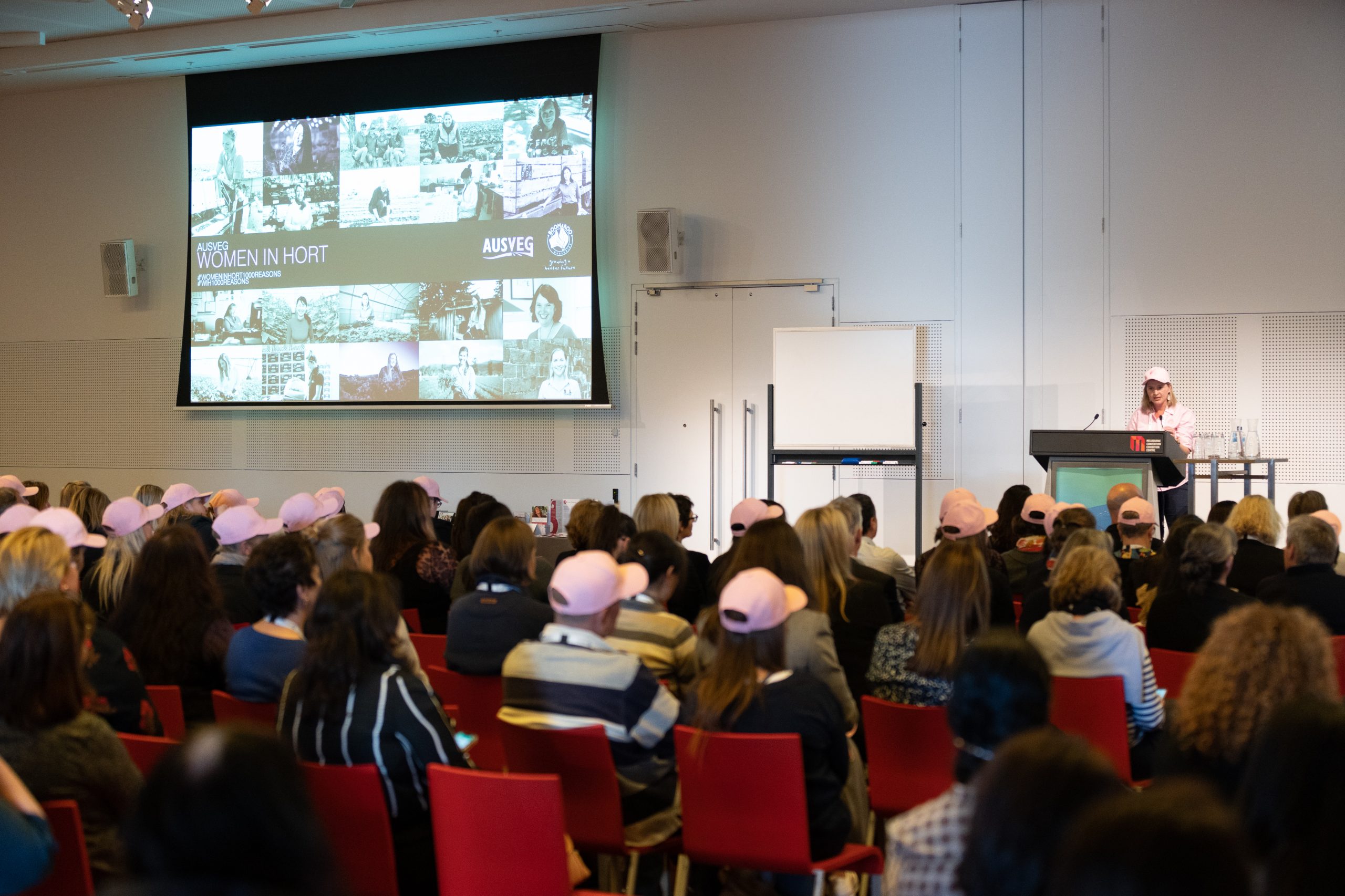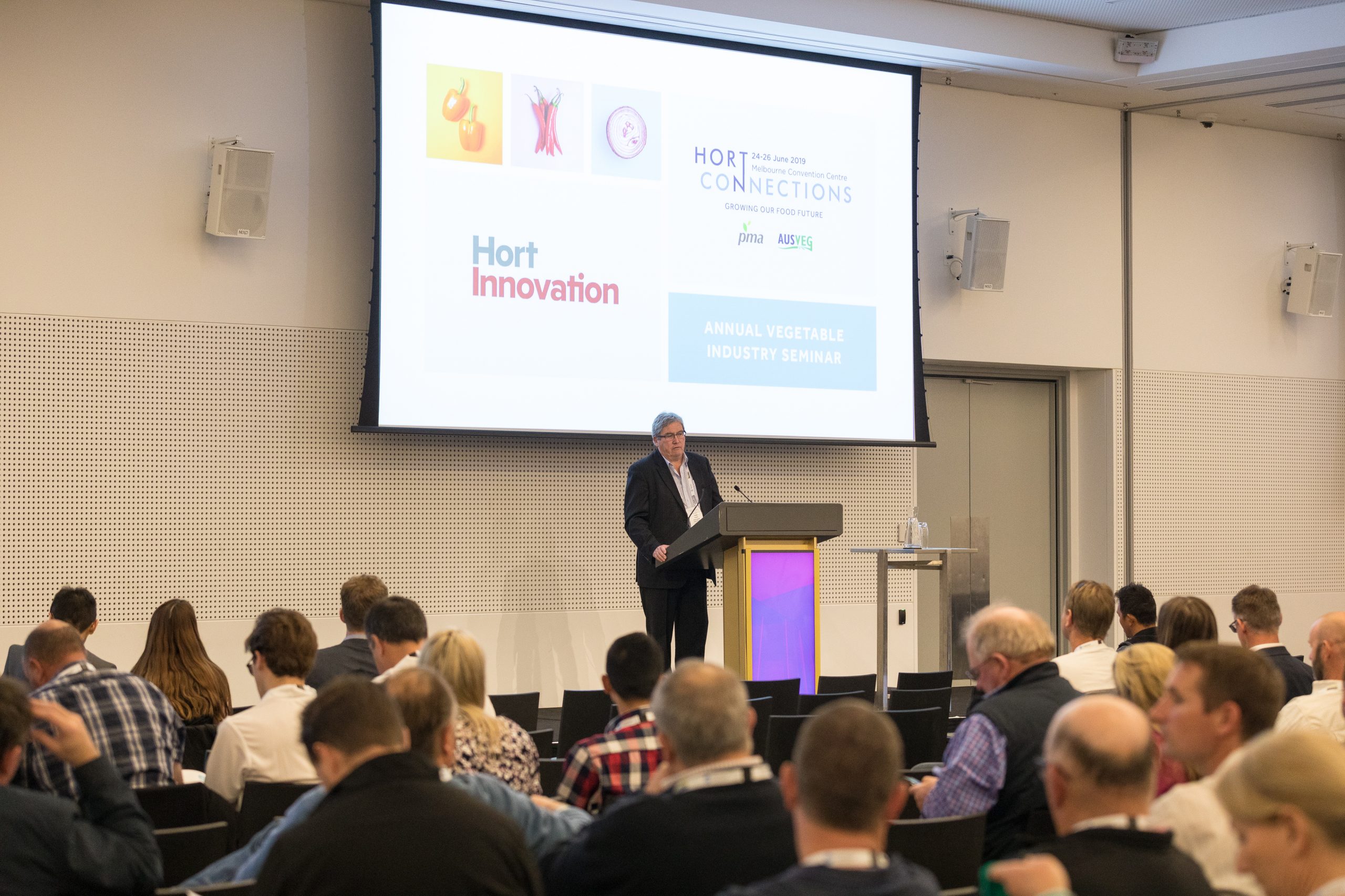
Resources: Fall armyworm
19 May 2020
Women in horticulture encouraged to share their stories
19 May 2020In June 2019, Australian vegetable growers gathered to learn how they can rise to meet the needs of local and global consumers, and use innovative technologies to develop vegetable products that consumers want. AUSVEG provides an overview of the Seminar.
Australian vegetable growers were treated to presentations from eight researchers and experts from around the world at the 2019 Annual Vegetable Industry Seminar, combining the Global Innovation in Horticulture and Export Seminars from previous years.
A packed room of 250 vegetable growers converged on the Melbourne Convention and Exhibition Centre to learn from the industry’s leading thinkers and network with their fellow peers. The Seminar’s core aim was to share knowledge and up-to-date information that could help the Australian horticulture industry better understand and overcome current and future challenges to productivity.
The new, larger event format meant that all growers interested in learning the latest scientific, technological and export-related content relevant to their businesses could do so. The Seminar’s topics covered a range of areas, including blockchain and vertical integration, controlled and sustainable growing environments, vegetable seed infringement and even the future of plant-based meats and what that means for Australian agriculture.
Coordinated by AUSVEG, The Annual Vegetable Industry Seminar (VG18001) was a strategic levy investment under the Hort Innovation Vegetable Fund.
Blockchain and vertical integration
The Seminar was moderated by Greg Fraser, Chief Executive Officer of Plant Health Australia, who facilitated Q&A sessions with each speaker following their presentation.
The first presentations for the Seminar were from Bryn McFadden and Harrison Enright of iTradeNetwork, a global provider of supply chain management solutions for the food and beverage industry based in California.
They discussed the complexities of capturing data for food and beverage blockchains, promoting innovation in the perishables supply-chain and educating participants on how to adopt technology to solve real problems.
Dennis Lin from BDO Australia addressed vertical integration for branded food businesses. Dennis, using his expertise in the field, discussed the benefits that food businesses could gain from vertically integrating their operations and the ideal scenarios when you would choose to (or not to) vertically integrate your business, as well as ways to understand the market when you have made the decision to adopt vertical integration.
Technology and the future of food production
The next speaker who addressed the vegetable growers in attendance was Marcus Van Heijst from technology company Priva, which develops hardware for climate control, energy saving and optimal reuse of water for horticulture. Marcus discussed controlled growing environments and how they are being used to transform food production in the fresh produce industry.
Attendees then heard from Thomas King, CEO of Food Frontier, a not-for-profit think tank and industry accelerator creating the ecosystem for a more healthy and sustainable food future, particularly through plant-based and cell-based meat. Thomas focused on the opportunities that could exist with the increasing popularity of plant-based meats and how vegetable growers could benefit. He explained that as a food source, plant-based meats are becoming increasing popular among consumers who have concerns about the ethics and environmental impact of the agriculture industry.
Food for thought
Roger Tripathi, CEO of Global BioAg Linkages, presented on bio-agriculture’s role in sustainable food and fibre production. Roger’s core focus was how farmers could make a return on their investment by incorporating bio-agricultural farming practices and their role in establishing ‘grower to consumer’ and ‘soil to shelf’ connections through the supply chain.
2018 Young Grower of the Year Chris McLoughlin from Escavox and Mycelia Organics addressed attendees on ways that innovation in production and supply-chain can be used to capture market share.
The final presentation for the day was from Casper Van Kempen from the Anti-Infringement Bureau for Intellectual Property Rights on Plant Material (AIB) in Belgium, who discussed why vegetable seeds are protected by Intellectual Property Rights, and why this is important for sustainable horticulture.
Casper covered a number of important aspects to this complex topic, including the AIB’s role, an overview of Plant Breeders’ Rights, the main piracy issues and consequences with vegetable seeds and examples of successful initiatives from chain partners to combat piracy.
Acknowledgments
The 2019 Annual Vegetable Industry Seminar was funded by Hort Innovation using the vegetable research and development levy and contributions from the Australian Government.
Project Number: VG18001
Find out more
More information about Hort Connections 2021 will be released in the coming months. Hort Connections 2021 will be held from 7-9 June 2021 at the Brisbane Convention and Exhibition Centre.
In the meantime, a comprehensive wrap-up of last year’s event can be found on the AUSVEG website.



